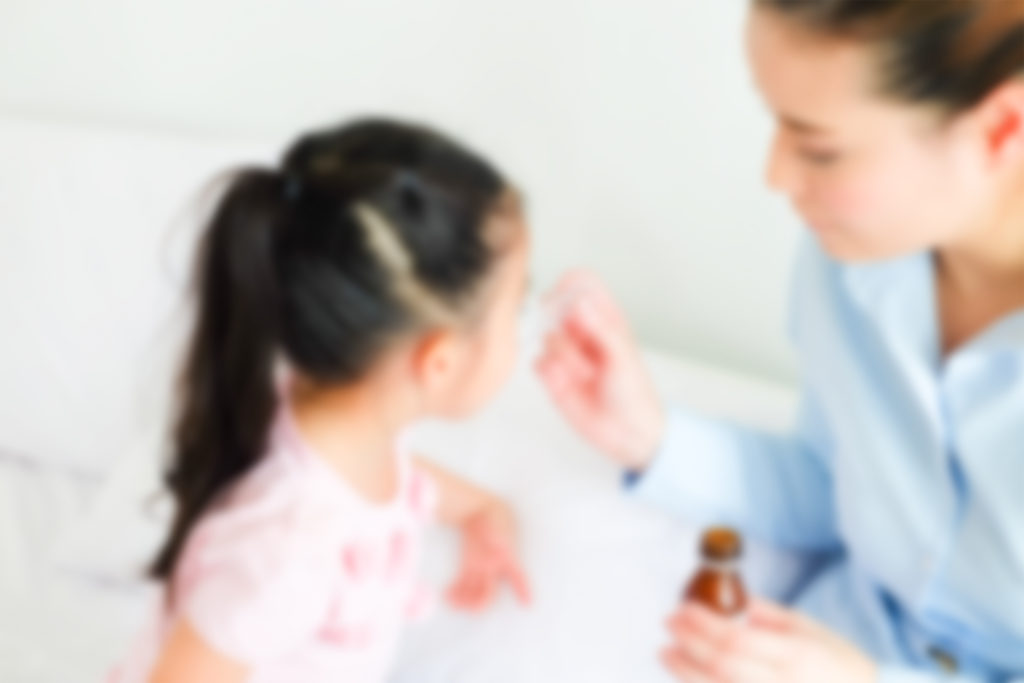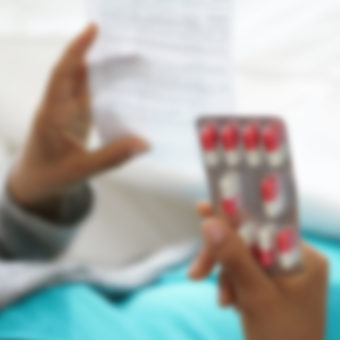

If you’re a parent or guardian, there are certain steps you can take to help encourage following label directions or healthcare provider’s advice, prevent dosing mistakes, and safely store your family’s medicines to help everyone in your household stay healthy and safe. Whether you have a child at home that regularly takes prescription medication, or you occasionally administer over-the-counter treatments when your kids get sick, here are some tips that can help your family with medicine safety, storage, and disposal.
When it comes to kids, the dosage amount may vary depending on their age and body weight, so it’s critically important to read the label first and follow any directions given by your healthcare provider or pharmacist. Never give your kids anything that the label cautions against giving to children, and never give a child medicine in a greater dose, or more often, than stated on the label. If you don’t fully understand the information on the label or have any doubts, call your child’s healthcare provider or pharmacist before giving them the medicine.
If you’re unsure what to use, speak with your healthcare provider or pharmacist – don’t guess or substitute with another item. For example, if the label specifies one teaspoon of medicine, don’t try to estimate using the same household spoon you’d use for cereal or soup: these come in many different sizes, and should not be used as a substitute for an accurate measuring device.
Whether or not your kids are old enough to administer their medicine on their own, it’s important to talk to them about what they’re taking and why, and to set some ground rules that can help keep them safe. For example: teach your kids at a young age that they should never taste any pill or candy that they find (and to bring it to you or another adult). Talk to them about how their medicine makes them feel and let them know that they should come to you if it’s making them feel different, or worse than before they started taking it.
Keep a written record of the essential information about each medicine your child takes, and when and how they take it. Not only will this help you to keep things straight and to decrease the chances of making a mistake, but it can also be shared with other adults that may care for your child regularly (i.e., teachers and school nurses, babysitters, grandparents, and parents or guardians of friends whose homes they visit regularly). You may also have your child keep a copy in their backpack or bag in case of an emergency.
If your older child is responsible enough to take medicine on their own, work with them to establish a system that can help them to remember each dose. If they have siblings or pets at home, help them to find the most secure place in the house to store their medicine to prevent any mistakes or accidental misuse. If they need to carry their medication with them outside of the home, speak with their teachers about what the rules are about taking medicine at or to school, and be sure that your child understands them. Additionally, talk to them about the importance of keeping their bags and backpacks that contain medications away from other kids at school or at friends’ homes.
Whether you’re storing medicines, vitamins, or supplements, and whether they’re for you, your kids, or someone else in your household, secure storage and disposal are essential for keeping your family healthy and safe. Keep in mind that any medicine – or even vitamins or supplements –could be harmful if taken by the wrong person or in the wrong way. Finding a storage location that is hard-to-reach and out-of-sight, or locking up medications in a secure storage device (e.g., a personal lock-box) can help protect kids who may accidentally ingest or apply medicine out of curiosity.
When you and your family members are taking multiple medicines, keeping ones that are expired or no longer needed might lead to confusion. Being diligent about prompt and proper disposal may help your household to stay organized. Disposing of household medicines is easy: visit our Kiosk Site Locator to find a safe and secure kiosk site near you. Kiosk sites are often located in your local pharmacy, health care facility, or law enforcement facility. They are an anonymous and convenient way to securely dispose of unwanted, unused, or expired medicines.

Prescription Medication Guides ~ It’s important to read the label of any medicine before use – but what about the…
Read More
It's called a medicine cabinet for a reason...isn't it? ~ While you may have been storing your prescription medicines, over-the-counter…
Read More
Four Ways to Find Out ~ We’re striving to educate prescription and over-the-counter medication users about how to follow instructions…
Read More
Find a system that works for you ~ Do you take multiple medicines - or multiple doses of a single…
Read More